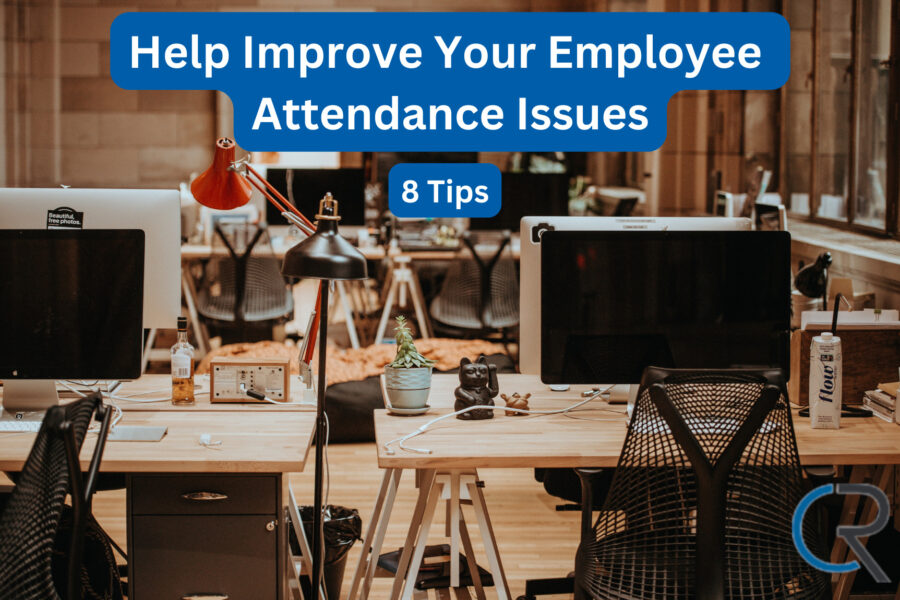Employee attendance isn’t just a box to be ticked on administrative checklists; it’s a critical heartbeat of any thriving business. Regular presence of staff is as fundamental to a company’s success as the gears are to a well-oiled machine. However, just like those gears, attendance can grind to a halt if not properly maintained.
From delayed projects to strained coworker relations and impacted service quality, the ripple effect of absenteeism can be profound and costly. Hence, it’s not an issue that can be swept under the rug. As we dig into the realm of improving your employee attendance, we’ll explore not just the impacts but also the steps necessary to bolster attendance records and, by extension, the business’s health.
1. Establish Clear Attendance Policies
Clarity breeds confidence and compliance. A clearly articulated attendance policy serves as a roadmap for employees, outlining expectations and consequences without ambiguity. It eliminates guesswork and ensures that every member of the team is on the same page, which is critical for fairness and transparency.
Crafting an attendance policy that is both fair and flexible requires a careful balancing act. Here’s how to navigate this process:
- Define Expectations Clearly: Be explicit about what is considered tardiness, early departure, and absenteeism. Specify the number of occurrences that trigger a formal response.
- Incorporate Flexibility: Recognize the value of work-life balance by incorporating options like remote work or flexible hours where feasible.
- Provide Incentives: Rather than only having punitive measures, consider rewards for excellent attendance, such as an extra day off or recognition in the workplace.
- Engage Employees in Policy Formation: Input from staff can not only provide valuable insights but also increase buy-in and compliance.
- Communicate Regularly: Policies should be communicated during onboarding, with regular refreshers. Ensure that everyone knows where to find the attendance policy documentation.
The creation of an attendance policy should not happen in a vacuum. It must reflect the broader culture of the organization. For instance, if a company values autonomy and trust, the policy may lean towards flexibility, emphasizing results over strict schedules. Alternatively, in industries where punctuality is non-negotiable, such as healthcare or customer service, policies might be more rigid but still should accommodate the occasional unpredictability of life.
The policy should also mirror the company’s commitment to diversity and inclusiveness, considering cultural holidays, mental health days, and parental leave. This approach not only adheres to legal standards but also fosters a culture of understanding and respect.
2. Engage in Open Communication
When the time comes to address attendance issues with an employee, the approach can make all the difference. It is vital to ensure that the conversation is conducted privately and with a sense of understanding. It should not feel confrontational but rather like a collaborative effort to find solutions.
The tone of the conversation should be professional, calm, and empathetic. Start by stating your observations factually and express your concern for the employee’s well-being. This approach helps in keeping the discussion focused on finding solutions rather than placing blame.
A constructive conversation aims to uncover any underlying issues contributing to the attendance problem. Ask open-ended questions to allow the employee to share their perspective. Be prepared to listen to issues like personal challenges, workplace conflicts, or health concerns. Understanding these factors is essential for addressing the root causes of absenteeism.
3. Consider Reasonable Accommodations
Sometimes, consistent absenteeism is a signal that an employee might need accommodations at work. Whether it’s due to a disability, chronic health issues, or other life circumstances, reasonable accommodations can be a legal requirement and also an ethical approach to support your staff and reduce absenteeism.
Accommodations will vary based on individual needs but can include:
- Adjusting Work Schedules: Allow flexible hours or the option to work from home on certain days.
- Ergonomic Workstations: Provide standing desks or ergonomic chairs to employees with physical discomfort.
- Mental Health Support: Offer additional breaks, a quiet room for stress relief, or access to counseling services.
- Transportation Assistance: For those with commuting issues, consider offering support for transport or a company shuttle service.
Regular review of your accommodation policies is essential to ensure they align with employee needs and legal requirements. Solicit feedback from employees about what is working or where gaps may exist. Be open to making changes that can positively impact attendance and overall employee satisfaction.
4. Educate on Available Options
Education is empowerment. Ensure that all employees are fully informed of their rights and the benefits available to them. This could be through orientation sessions, employee handbooks, or regular updates in meetings. Knowledge of what is available to them can help employees manage their attendance more effectively.
The Family and Medical Leave Act (FMLA) allows eligible employees to take unpaid, job-protected leave for specified family and medical reasons. Explain the provisions of FMLA to your employees so they understand how it can be applied in situations that may affect their attendance. This knowledge can prevent misunderstandings and misuse of the leave system.
Remind employees that the company offers resources to support them in managing their work-life balance. This can include employee assistance programs, health care benefits, or even financial planning services. Encouraging the use of these resources can prevent future attendance issues and show that the company cares for their overall well-being.
5. Use Disciplinary Actions as a Last Resort
Positive reinforcement can be more effective than punitive measures in shaping behavior. Recognize and reward good attendance, and create an environment where positive behavior is noticed and appreciated. This encourages others to follow suit and can create a more positive workplace culture.
Discipline should be considered when there is a clear pattern of attendance issues that have not been resolved through other means. Ensure that the need for disciplinary action is based on documented evidence and is free from any bias or discrimination.
If disciplinary action is necessary, it should be progressive, starting with a verbal warning and escalating to more serious consequences if the behavior does not change. Each step should be documented, and the employee should have the opportunity to respond and make improvements at each stage.
6. Maintain Consistent Enforcement
For attendance policies to be effective, they must be consistently enforced. Consistency sends a clear message about the organization’s expectations and reduces confusion among employees. It also upholds the integrity of the attendance system and ensures that all employees are treated equally.
To maintain fairness, it is crucial to avoid any bias or discrimination in enforcing attendance policies. This means making decisions based on documented behaviors and facts rather than assumptions or stereotypes. Regular training can help managers recognize and overcome any unconscious biases.
Documentation is key to consistency. Keep detailed records of all attendance issues, including dates, times, and any actions taken. This creates a clear history that can be referred to if needed and supports the business in case of disputes or legal challenges.
7. Ensure Legal Compliance in Terminations
Most employment in the United States is “at-will,” meaning that either the employer or the employee can terminate the employment relationship at any time. However, there are limitations to this, such as contractual obligations or illegal discrimination. Be clear about these limitations and how they apply to attendance-related terminations.
Before terminating an employee for attendance reasons, ensure that you have thorough documentation of all incidents, the steps taken to resolve the issue, and the communication with the employee. This documentation is vital to demonstrate that the termination is justified and not arbitrary.
Terminations can be legally complex, and it’s often wise to consult with legal experts, especially in cases that may not be straightforward. This can help ensure that the company is in compliance with labor laws and can prevent legal repercussions.
8. Recognize When to Part Ways
Sometimes, despite best efforts, an employee’s attendance issues cannot be resolved. Recognizing when an employee has reached the point of no return is important for the health of the team and the company. This often involves repeated policy violations or an inability to improve after exhaustive support and accommodations.
Preparation is key before parting ways. This may involve cross-training other employees, redistributing the workload, or beginning the search for a replacement. Preparing for the transition can minimize the impact on the company’s operations.
When the time comes to part ways, it’s important to balance compassion with the practical needs of the business. Being empathetic towards the employee’s situation while also being clear about the business’s needs can help make the termination process as positive as possible.
Conclusion
The importance of proactive attendance management cannot be overstated. By addressing issues early, companies can often find solutions that prevent the need for more drastic measures.
Focusing on solutions and support for employees with attendance issues is generally preferable to seeking replacements. Retaining experienced staff is often more cost-effective than recruiting and training new hires.
Whether it’s revisiting your attendance policy, implementing a new communication strategy, or seeking legal advice, you should reach out to us now to learn how we can help grow your team.
Page updated on November 3, 2023.


